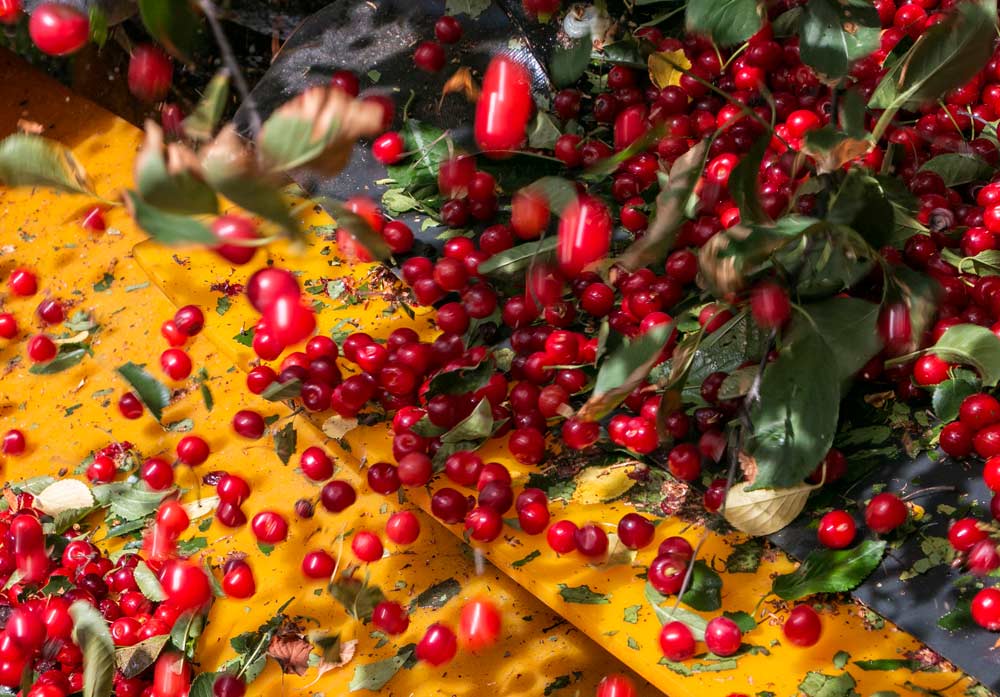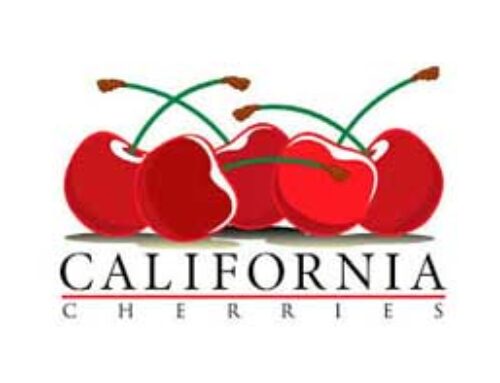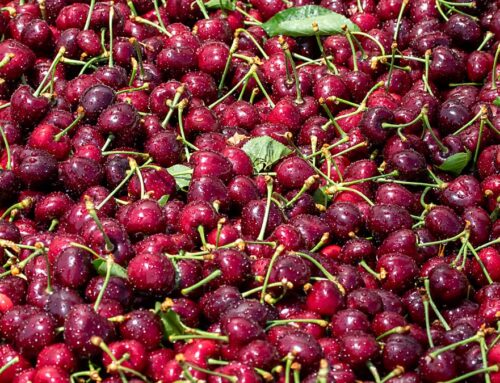
Tart cherries prices fell to unsustainable low levels in 2017, pushing the industry to consider legal action against low-cost imports from Turkey. These cherries were harvested at Dorsing Farms of Royal City, Washington, in 2016. (Ross Courtney/Good Fruit Grower)
Caught between low prices for processing fruit and high costs to prevent crop loss to spotted wing drosophila, tart cherry growers in Michigan are facing tight margins. But momentum in the industry is building to bring a legal challenge against one of the key price pressures: low-cost imports from Turkey.
Last year, cherry prices hit a recent low, estimated at about 18 to 20 cents a pound, although official U.S. Department of Agriculture figures have yet to be released. That’s down from 27 cents a pound in 2016 and 35 cents a pound in 2015. An oversupply from 2016’s bumper crop and imported competition together are pushing prices into unsustainable territory, especially given the increasing costs of production.
Meanwhile, imported cherry juice concentrate soared in recent years, to over 200 million pounds of concentrate in 2016, up from 25 million pounds a decade ago. Turkish producers took advantage of the growing interest in tart cherry products due to health benefits and their ability to import duty-free, said Don Gregory, co-owner of Cherry Bay Orchards and processor Shoreline Fruit, based in Traverse City, Michigan.
The U.S. tart cherry industry “spent a lot of money promoting the health benefits of cherries and cherry juice, but the growth has been all imported juice,” Gregory said. Those duty-free imports sell at about half the price of domestic juice, while U.S. cherry exports to Turkey face steep duties.
“The bottom line is the industry is going to have to work together to bring a dumping action against Turkey to bring the changes we need to help our growers stay in business,” he said. “We’ve got to get the playing field level.”
When it comes to a dumping action, however, growers lack the standing to bring a case because the imported product is processed, said Phil Korson, president of the Cherry Marketing Institute, which represents U.S. growers.
That’s created frustration as other recourses available to growers — appealing to lawmakers, petitioning to remove Turkey from the Generalized System of Preferences program that allows duty-free import of a wide variety of goods produced in developing countries and asking the Department of Commerce to bring its own case — have yet to gain steam.
“While we’re using the federal marketing order to balance out supply and demand, imported product is coming in unregulated,” he said. “We’re holding product off the market to maintain price that’s above the cost of production, while imported product is coming in unregulated and duty-free.”
Earlier this year, CherrCo, the largest tart cherry marketing co-op in the U.S., decided to take a serious look at bringing a dumping case and started to recruit other industry leaders to the effort, President Ed Surber said.
“My position is let’s do it or quit talking about it,” he said, acknowledging that there are significant costs and risks associated with bringing a case that other industry leaders are already weighing.
“What I want growers to understand is that somebody is trying to do something about it. We’re not just going to stand by on the sideline and hope the government fixes this problem,” Surber said. “It’s a great product and a great industry, but growers are looking for help.”
A case would likely take more than a year and cost a couple of million dollars, although there’s no specific estimate for this proposal yet, he said. Processors would have to be willing to open their books to federal investigators to prove injury due to the foreign competition. There are a lot of lawyers to hire and numbers to crunch.
For a case to be successful, the processors would also have to show that there’s a margin between what Turkish juice concentrate is selling for in the U.S. compared to other export markets. If Turkey is selling the same product for more in other markets, that’s the evidence that it’s dumping juice in the U.S, Surber said.
Surber said he thinks it’s the right course of action, but he understands the hesitation because there is no guarantee a dumping case would boost domestic prices.
“If we go down the road and establish a dumping margin or tariff or tax, there is still no guarantee that we as a domestic market will benefit from that. The U.S. companies buying these products, if all of a sudden those foreign products become more expensive, they may just say they are not using tart cherry products anymore,” Surber said. “But on the reward side it potentially opens up a huge market.”
The tart cherry industry has been pushing back on imports with its Montmorency-focused marketing. Promoting the North American tart cherry over European varieties, which are darker and less tart, is gaining traction with consumers, but with a processed product, locally grown marketing is more challenging, said Mollie Woods, executive director of the Cherry Industry Administrative Board, which oversees the marketing order.
“We have an exceptional product. I just feel like our industry needs a little help,” she said. “The first thing our growers are asking for is to just give us a fair playing field.” •
—by Kate Prengaman






Leave A Comment